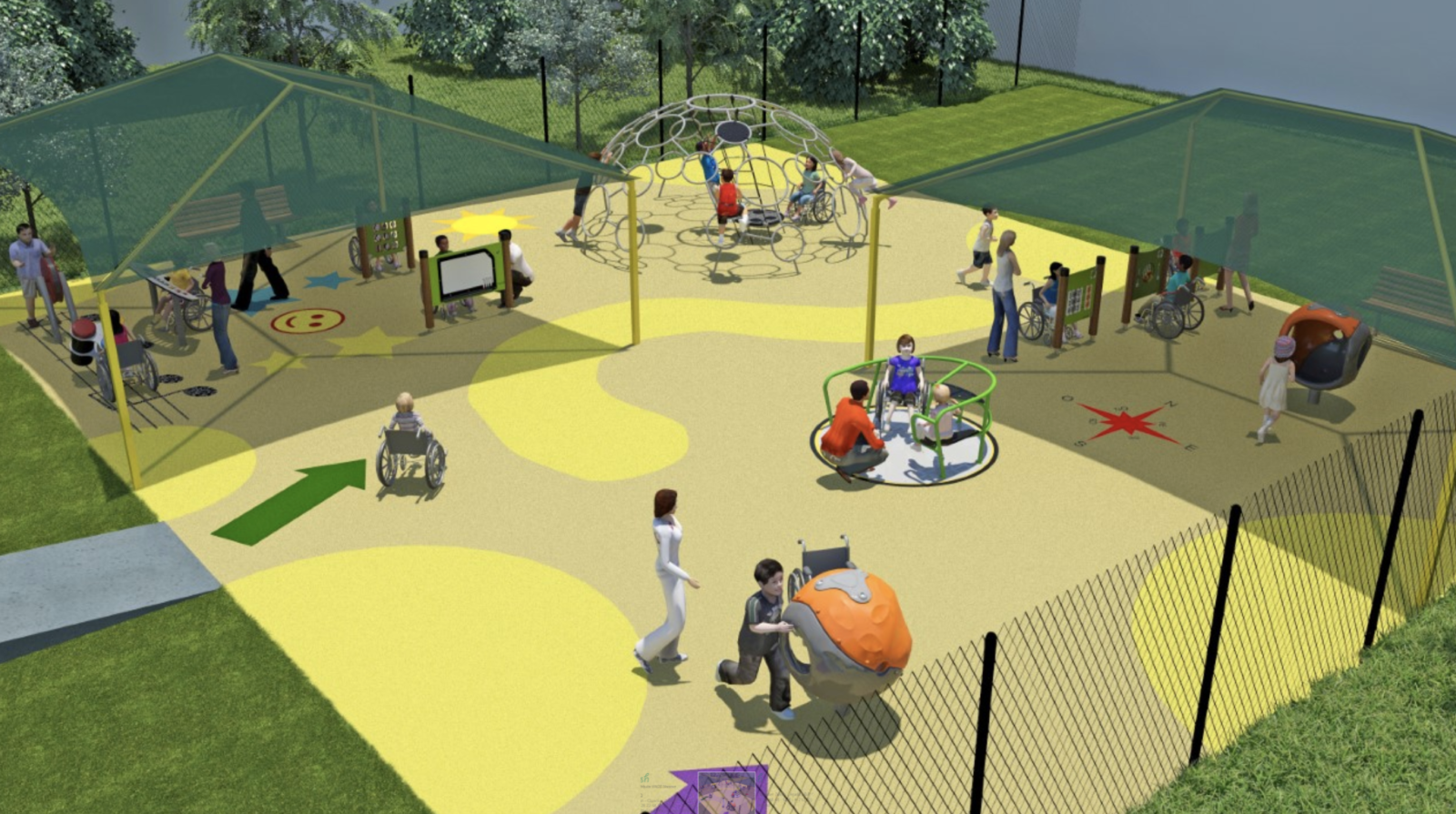By Noma Saeed, Co-founder of BLOOM Charity
A few minutes into my tour of Al-Ihssane’s Baouafi Center Orphanage in Casablanca, I was punched in the back. It was a pretty big blow, and it shocked me and those around me. The culprit was a 12 year old boy, “Adil.” I turned to discover tears of frustration streaming down his face. I was blocking the path to a locked door that our guide was about to open and Adil was desperate to go outside. Within moments, his arms were locked by 2 caregivers, and he was dragged back into a bedroom.
Adil was just one of many children with physical or mental challenges that I met on my tour that afternoon. Room after room, children sat in wheelchairs or lay in their beds with nothing to do but stare at the walls. As my bruise healed over the next few days, I couldn’t help but think about the desperation and frustration that led to Adil’s aggression.
For children like Adil, the barriers to accessible physical activity are agonizing. Children with disabilities are often so desperately in need of a physical outlet that they will do whatever they can to release their frustration.
There are approximately 8 million children living in institutions around the world, and those with disabilities are overwhelmingly represented. Children with physical disabilities are limited in their abilities to explore or interact with their environment and are deprived of normal childhood experiences. Institutionalization only further exacerbates the problem.
How could we provide Adil the outlet that he so desperately needs?
Through Accessible Play.
Accessible playground equipment benefits all children. For children of Baouafi Center orphanage, all of whom face some sort of physical or mental challenge, our accessible playground will allow them to play too. Something as simple as accessible surfacing can make playground equipment navigable for wheelchairs and the people who use them.
Free play is crucial to the development of the whole child. Childhood play promotes exploration, decision-making, increased motivation, and competency — qualities that will eventually help children to become more productive members of society (Bundy, 1989). In short, play is crucial for human development. And it’s not just children who benefit. Accessible playgrounds will ease the burdens on the caregivers too.
The Americans with Disabilities Act (ADA) changed how playgrounds and parks are laid out and designed by requiring them to ensure play opportunities for children of all abilities. In one of the poorest neighborhoods in Casablanca- BLOOM’s accessible PlayGarden will be held to even higher standards. Here are some of it’s features:
· Wide paths between playground equipment so all children can walk or roll between playground equipment
· Surfacing which is easy to use with crutches, wheelchairs and other mobility devices
· Colors that are easier to see for children with visual impairments
· Areas of shade for children with sensitivity to sunlight
· Cozy or quiet spaces for children who may become overwhelmed and may need a quiet space
· Playground equipment that can be used in a number of ways, by everyone.
Through our partnerships with PlayPower; a world-renowned accessible playground equipment manufacturer, and Palitash, a flooring specialist and play equipment distributor in Morocco, we are able to design a playgarden which ensures accessibility and support for kids with a wide range of physical and mental challenges.
It took us a year to raise the funds for our latest Magical PlayGarden. In 2020, we’re excited to discover how Adil and his peers benefit through the power of play.
Author
-
Noma Saeed is the COO and Co-founder of BLOOM Charity. Noma spent her career spearheading innovative strategies and solutions to align business and technology, maximizing impact and effectiveness of business initiatives with a broad-based transferrable skill set in digital media, business management and brand development. Noma's greatest passion is advocating for the rights of vulnerable children. Motivated by her faith, she is inspired to work towards this mission every day of her life. After 3 biological children, she became a mother through adoption in 2016. She lives with her husband and 4 children in Richmond, VA.

